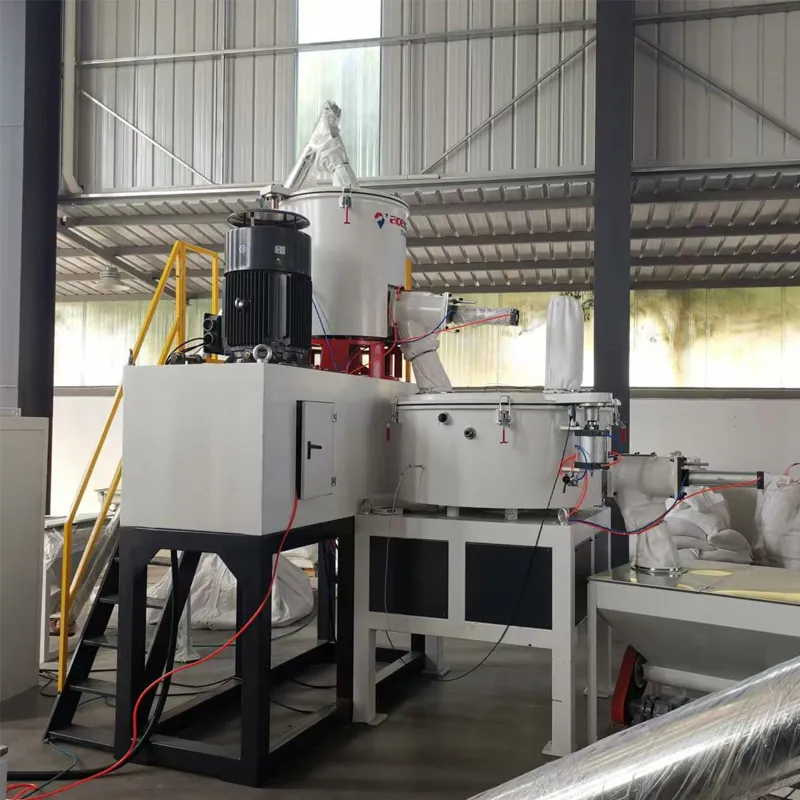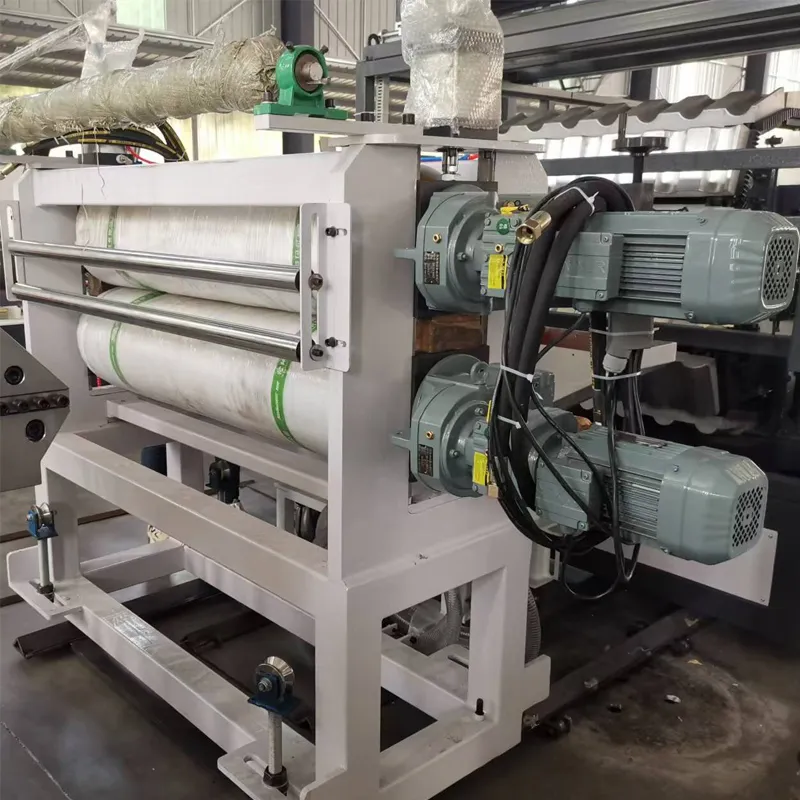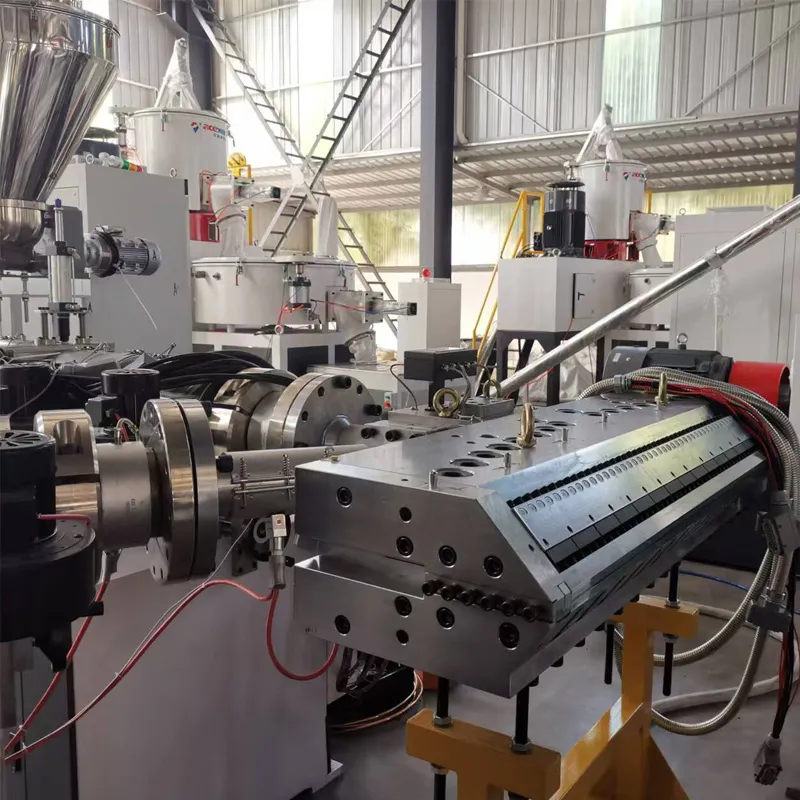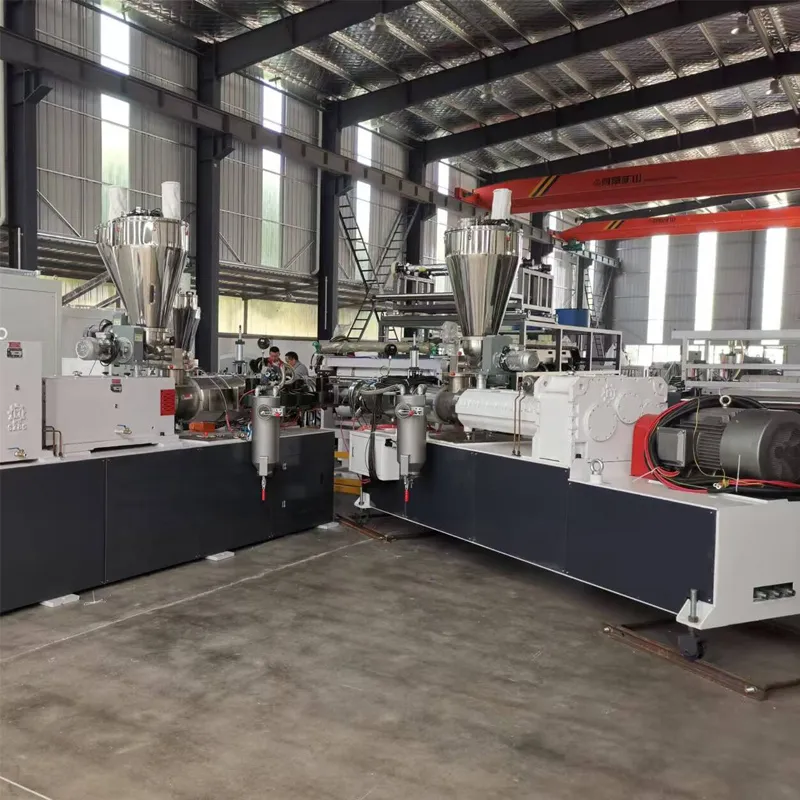High-Quality PVC Profile Extrusion Solutions | Custom Designs

Industry Trends & Market Outlook for pvc profile extrusion
The global market for pvc profile extrusion is projected to surpass USD 8.0 billion by 2028 at a CAGR of over 6.3% (Source: MarketsandMarkets). Key growth drivers include the rising demand for sustainable, corrosion-resistant profiles in construction, infrastructure, automotive, and chemical sectors. Technological advancement in pvc profile extrusion line and pvc sheet production line design have enabled significant energy savings and enhanced product customizability, aligning with stringent international standards like ISO 9001 and ANSI/SPRI for industrial materials.


Key application sectors:
- Construction: Window/door profiles, roofing, wall panels
- Infrastructure: Cable trunking, conduit profiles
- Automotive: Decorative trims, seals
- Industrial: Chemical processing, anti-corrosive linings
- Energy & Water: Pipes, tank liners
Technical Specifications Table: pvc profile extrusion, Sheet & Profile Lines
| Parameter | PVC Profile Extrusion | PVC Sheet Production Line | Typical Standard |
|---|---|---|---|
| Extruder Screw Diameter | 45-92 mm (Single/Conical Twin) | 80-200 mm (Parallel Twin) | EN ISO 1874-2 |
| Output Capacity | 120–700 kg/h | 400–1500 kg/h | ISO 9001:2015 |
| Power Consumption | 55-220 kW | 110-350 kW | ANSI/SPRI ES-1 |
| Max Profile Width | ≤ 400 mm | ≤ 2200 mm | DVS 2205 (welding) |
| Control System | PLC+Touchscreen (Siemens/Schneider) | PLC+Touchscreen (Siemens/Omron) | IEC 60204 |
| Surface Finish | Gloss/Matt/Embossed | Gloss/Embossed/Anti-UV | DIN 53387 |
| Certifications | CE, ISO9001, SGS | CE, ISO9001, FDA (for food grade) | FDA, SGS |
pvc profile extrusion Process Flow Explained
The core manufacturing process for pvc profile extrusion involves material compounding, controlled extrusion, calibration, cooling, cutting, and quality testing. Below is a schematic process flow:
Pvc Roof Sheet Roll Forming Machine: Core Advantages & Use Cases
Pvc Roof Sheet Roll Forming Machine

- Material Compatibility: UPVC, CPVC, APVC, ASA-PVC, fiberglass reinforced plastic.
- Precision Forming: PVC profile extrusion machine employs CNC-calibrated rolling dies, meeting DIN and ISO profile tolerances (<±0.2mm).
- Manufacturing Process: Raw powder/blend → High-torque conical/parallel twin screw extrusion → Sheet die shaping → Roller forming → Online cutting.
- Surface Options: UV-protective, anti-corrosive, colored, or embossed sheet profiles.
- Testing Certifications: ISO 9001-compliant, ANSI weather resistance, ROHS/FDA for customized profiles.
- Durability: Service life up to 30+ years in petrochemical and corrosive environments.
- Usage Sectors: Chemical storage, roofing, mining, agricultural buildings, electroplating factories.
PVC Extrusion Line Efficiency by Type (kg/h)
Pvc Roof Sheet Forming Machine Power Distribution
Output Growth Trend (2019-2024)
Product Comparison: pvc profile extrusion line vs pvc sheet extrusion machine
| Feature | PVC Profile Extrusion Line | PVC Sheet Extrusion Machine | Pvc Roof Sheet Roll Forming Machine |
|---|---|---|---|
| Designed For | Profiles (windows, trims, rods, cable trunking) | Sheets (rigid, foamed, clear/opaque) | UPVC, APVC, ASA roof sheets |
| Output Range | 120–700 kg/h | 400–1800 kg/h | 1100–1500 kg/h |
| Width Limit | ≤400mm | ≤2200mm | ≤1300mm |
| Surface Types | Matt, Gloss, Embossed | Embossed, High-gloss, UV, Color | UV, Color, Anti-corrosive |
| Forming Device | Calibration table, molds | Roller stack, air knife cooling | Roll Forming Rollers |
| Certifications | CE, ISO9001 | CE, ISO, FDA (Food-grade) | ISO9001, ANSI, SGS |
| Maintenance | Medium, mold cleaning | Medium, screw/barrel clean | Low, automatic lubrication |
Real-world Applications & Case Studies: pvc profile extrusion in Action

Typical Applications
- Chemical Storage: Process tanks/liners in refineries, acid/alkali plants
- Smart Construction: Roof panels for eco-buildings, sound barriers along highways
- Water Management: Drainage/irrigation, treatment plants (anti-fouling, longevity)
- Lightweight Infrastructures: Prefabricated structures, modular housing solutions
- Factories & Agro Sectors: Greenhouse coverings, ventilation ducts
User Case Example:
In 2023, a Chilean mining company upgraded to pvc profile extrusion lines for hazardous gas enclosures, achieving 37% energy cost reduction, while maintenance frequency fell by 44% compared to steel-based alternatives.
Customization: Tailor-made pvc profile extrusion Solutions
Leading manufacturers offer comprehensive customization for PVC profile extrusion to match exacting customer requirements, including:
- Material Blends: UV stabilization, flame retardant, impact strengthening, food-grade compounds
- Dimension Customization: Complex cross-sections (incl. co-extrusions), up to ±0.1mm profile precision
- Surface Engineering: Anti-microbial, static-free, color-matched, anti-scratch, high-gloss finishes
- Device Upgrades: Servo control; full Siemens/Omron automation and remote operation
- Quick Tooling Change: Modular calibration blocks minimize downtime, boosting OEE (Overall Equipment Effectiveness) by 23% in customer projects (2022-2023, internal data)
Leading pvc profile extrusion Machine Manufacturers: Authority & Certifications
When sourcing pvc profile extrusion machine or pvc sheet extrusion machine, critical criteria include production capacity, automation, ancillary equipment, and industry certifications. Top manufacturers such as YOWIN, Battenfeld-Cincinnati, and KraussMaffei:
- YOWIN (China): ISO9001, CE, SGS-certified; 15+ years; global installations (>100 countries), partnered with BASF and Sinopec.
- Battenfeld-Cincinnati (Germany): Ultra-high output lines, strict EU safety, co-extrusion capability, 30+ years of expertise.
- KraussMaffei (Germany): Automation leader, energy-optimized, full digital control, supports FDA materials.

Expert FAQ: pvc profile extrusion Terminology & Buyer Guidance
Delivery Timeline, Warranty, and Global Support
- Delivery Cycle: Standard models: 35–50 days (FCA/FOB). Custom lines: 50–75 days after order confirmation and technical drawing approval.
- Warranty: 15–18 months (core mechanical/electrical), with lifetime support and cost-price spare parts.
- Global Commissioning: Field engineers for installation, process setup, and operator training; 24/7 online diagnostics via Industrial IoT modules.
- Documentation: Full electrical/PLC, process specs, and ISO-certified quality reports included.
Customer Review: pvc profile extrusion Project Experience
“Our new roof sheet production line from YOWIN delivered exceptional surface quality and output—cycle time improved by 21%. After 14 months’ operation, total downtime was cut by 35%. The team’s response for remote troubleshooting made operator training and parameter optimization smooth, meeting all ISO standards and our local licensing requirements.”
— Rohit Jain, Project Director, India
References & Further Industry Reading
- MarketsandMarkets, “PVC Profile Extrusion Market - Global Forecast,” [Link]
- Polymer Engineering & Science Journal: “Advances in Twin-Screw Extrusion for Profiles.” [Link]
- PlasticsToday Forum: “Comparing Global PVC Profile Extrusion Lines” [Link]
- ISO 9001 Standards Organization: [Link]
- YOWIN Machinery Official: [Product Link]
